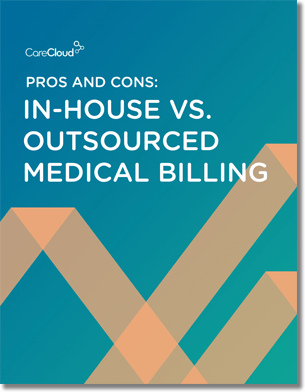In healthcare, medical terms are the foundation for communication. They guarantee precision, protection, and effectiveness in taking care of patients. At the same time, they support worldwide teamwork and progress in medical science. A uniform language makes it easier for health workers to rapidly understand what a patient requires and interact with their team for care.
The Role of Medical Terminology in Healthcare
The universal language in the medical field is termed ‘medical terminology.’ It comprises official terms and abbreviations used to explain anatomy, body functions, diseases, diagnoses and treatments or procedures.
Medicine’s official names for illnesses and operations are crucial to be learned and comprehended by healthcare experts. Several terms, usually abbreviated for efficient communication in this language, add another set of acronyms.
When Is Medical Terminology Used?
In healthcare, medical terminology has extensive application, not just within the surgical ward or emergency room. It also benefits medical receptionists, health insurance agents, health information technicians, and other professionals.
The Following are the Most Common Uses for Medical Terminology:
Patient Care:
Inpatient evaluations, diagnosis processes, treatment designations, and medical terms assist in precisely explaining the symptoms, situations, and actions to be taken, which helps ensure knowledgeable and uniform patient care.
Medical Documents:
In healthcare facilities, complete medical records are kept for every patient they care for. These records use a lot of medical terminology to note down the history of illness, medications being used by the patient, results from laboratory tests, and plans for treatment in an all-inclusive manner.
Prescriptions:
Doctors make use of medical terminology when writing prescriptions. They state the particular medicine, strength, and how often it should be taken or applied to a patient’s body part explicitly and without confusion.
Medical Billing:
These people use medical codes to inform a patient’s insurance provider about their conditions, medications, and treatments. This helps ensure that patients get covered or billed correctly for their care.
Consultations and Referrals:
When doctors talk with specialists or send patients to other healthcare providers, medical terminology is important for passing on critical and exact details about the person’s situation and needs.
Medical Imaging:
Medical professionals, such as radiologists and other healthcare technicians, utilize medical terminology to explain discoveries on X-rays, MRIs, CT scans, and imaging studies. This guarantees accuracy in reporting and suggestions for treatment.
Medical Research:
Medical terminology is common in scholarly articles, clinical trials, and research papers. This type of language allows scientists and researchers to communicate their discoveries with other professionals in the field while also adding to the worldwide pool of medical knowledge.
Education and Training:
Medical terminology is essential to healthcare learning. Students need this language to comprehend and express themselves well when working in clinical areas.
Health Information Systems:
Electronic health records (EHRs) and healthcare IT systems greatly depend on medical terminology for inputting data, getting it back later, and sharing it between healthcare providers or facilities.
Importance of Knowing Medical Terminology
All healthcare team members need to understand and communicate using medical terminology. This helps in the following ways:
It Promotes Clarity and Precision:
Medical terminology helps eliminate vagueness by offering exact terms to explain conditions and procedures. This clarity is crucial for avoiding misinterpretations, which might result in severe outcomes for patients and caregivers.
It Standardizes Healthcare Around the World:
The healthcare field is worldwide, so having a common medical terminology guarantees that professionals from all over the globe can comprehend one another. This is very crucial in today’s interlinked healthcare systems.
It Supports Efficiency:
In fast healthcare situations, short and standard speech assists the providers in keeping time. It enables them to record patient details precisely and promotes effective exchange of information among team members caring for the patient.
It Ensures Patient Safety:
Medical language prevents mistakes in diagnoses and treatments because it ensures that all people taking care of a patient understand the same information, lowering the chances for errors.
It Contributes to Furthering Medical Research:
The basis for all medical literature and research lies in medical terminology. This allows healthcare workers to enter, comprehend, and add to the growing medical wisdom.
It Supports Career Advancement:
Like every professional and lifelong learner, enhancing your knowledge in medical terminology could promote you or make you more likely to be hired for healthcare-related jobs. Even if your work does not involve clinical duties, listing this skill on a resume can give an impression that sets you apart as an especially useful resource.
Conclusion:
Knowing medical terminology is crucial for improving communication, precise recording, and achieving better results with patients in healthcare. It is a common language that allows health professionals to share exact details about conditions, remedies, and processes across different places and fields.



